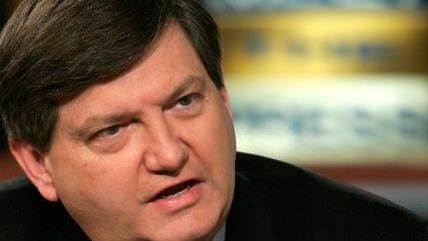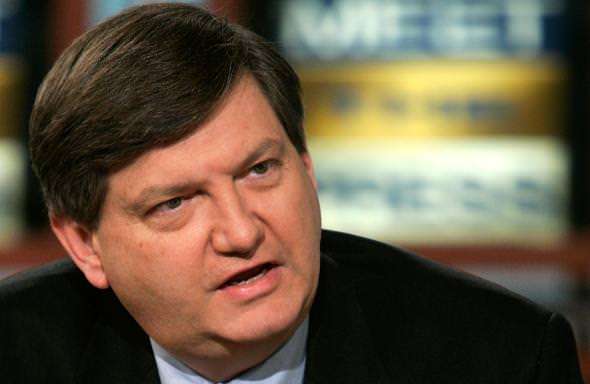Supreme Court Won't Intervene in Obama Administration's War on Journalists, Leakers


Amid the flurry of activity announced from the Supreme Court today, one simple order put an end to New York Times reporter James Risen's legal efforts to refuse to identify a confidential source used in his book, State of War. The Supreme Court declined to hear his case.
The source is alleged to be Jeffrey Sterling, a former CIA official the Department of Justice is trying to convict under the Espionage Act for supposedly detailing to Risen a secret plan to sabotage Iran's nuclear research. Risen included the information in his book, published in 2006.
Risen has said he would go to jail rather than give up his source. The Supreme Court's unwillingness to take up the case leaves intact an order from the Appeals Court for the 4th Circuit to comply with the subpoena. But though Risen could face jail for contempt, The New York Times notes that the Department of Justice may not be willing to push that far:
Attorney General Eric H. Holder Jr. hinted last week that the Justice Department might choose not to ask the trial judge to jail Mr. Risen for contempt should he refuse to testify.
The Obama administration has pursued leaks aggressively, bringing criminal charges in eight cases, compared with three under all previous administrations combined.
At the same time, the administration has supported efforts in Congress to create a federal shield law that would allow judges to quash some subpoenas to journalists. The Justice Department has also issued new internal regulations limiting the circumstances in which prosecutors can subpoena reporters' testimony and records.
While the proposed federal shield law and new internal regulations sound like positive developments, I've previously noted that both the proposed law and the regulations have holes you could drive a newspaper delivery truck through. Given the nature of the information provided to Risen, it seems unlikely the proposed federal shield law (pdf) would have protected him even if it were in place. It has a significant "national security" exemption that encourages deference to federal claims.


Show Comments (12)